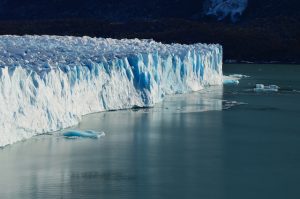Global temperatures have risen at a magnitude not seen since the last ice age over 24,000 years ago, according to a study led by the University of Arizona and published in the peer-reviewed scientific journal Nature.
The study found that rates of climate change over the last 150 years – since the industrialization of global societies – have surpassed the level and rate of change over the previous 24,000 years. The study also indicated that temperatures have generally risen over the last 10,000 years, confirming that anthropogenic climate change, also known as man-made climate change, has been the primary contributor to climate change since the last ice age.
Also Read | ‘Watered-down hope’: Experts expected more from climate pact
“The fact that we’re today so far out of bounds of what we might consider normal is cause for alarm and should be surprising to everybody,” said lead study author Matthew Osman, a geosciences postdoctoral researcher at the University of Arizona.
Researchers used two independent datasets to model temperatures dating back over 24,000 years: temperature data from marine sediments and climate computer simulations.
Also Read | Good COP, bad COP? Takeaways from new UN climate deal
“To forecast the weather, meteorologists start with a model that reflects current weather, then add in observations such as temperature, pressure, humidity, wind direction and so on to create an updated forecast,” according to study co-author U of A geosciences associate professor Jessica Tierney.
“This reconstruction… suggests that the speed of human-caused global warming is faster than anything we’ve seen in that same time,” she warned.
Also Read | Nearly 200 nations compromise on coal to strike UN climate agreement
Every year, scientists and researchers issue unsettling warnings about climate change, heightening the urgency for action. From October 31 to November 12, 2021, the United Nations Climate Change Conference, dubbed “COP26“, brought sovereign leaders and diplomats from all over the world to Glasgow, Scotland, with the goal of addressing existential issues and forging a new climate-friendly path forward before global warming reaches irreversible levels.







